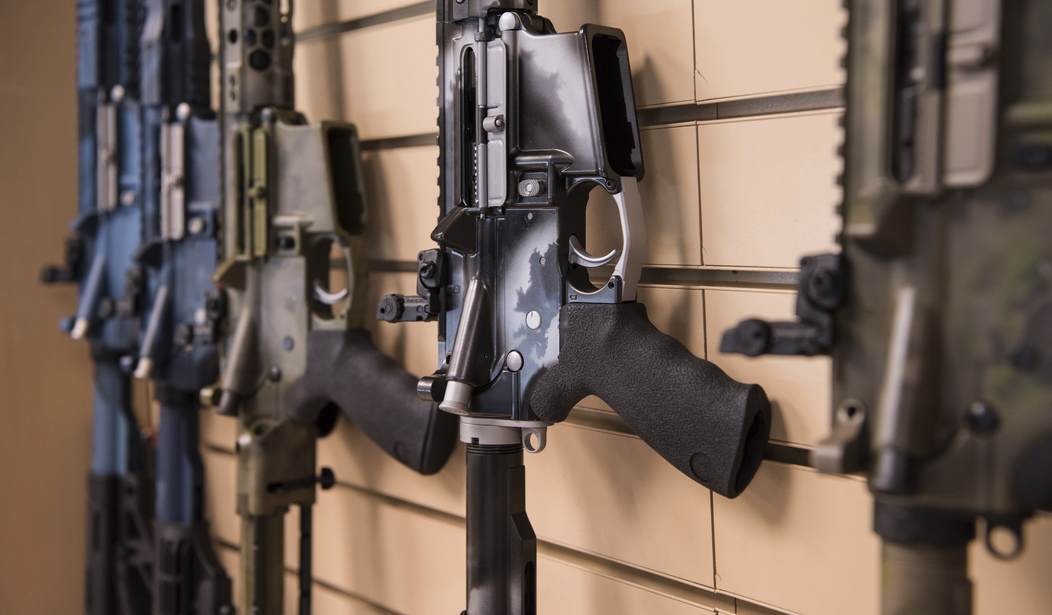A lot of people have lost people they care about to violence over the years. In a nation of more than 330 million people, that’s going to happen, after all. In many of those cases, the weapon used was a firearm, unfortunately.
And afterward, a lot of those people end up as anti-Second Amendment activists. They desperately want gun control and they believe their status as people who lost someone to “gun violence” somehow makes their opinions worth more.
Take this op-ed in USA Today titled, “My brother was murdered. Now my elected leaders reject my plea for commonsense gun laws.”
In it, the author writes:
On Aug. 31, 2019, my younger brother Joe was on his way to take family photos with his wife and two children in the car – my 11-year-old nephew and 13-year-old niece. They pulled up to a red light in Odessa, Texas.
In seconds, he was shot and killed.
Our lives would never be the same. My brother was one of seven the shooter killed that day; 25 others were shot and wounded.
The hole in my brother’s chest took his life. We’ll never be able to fill the hole in our entire family.
In the two years since, I’ve fought for gun safety laws that could have saved my brother and would save thousands of lives.
Except, if her brother was killed in the Odessa rampage shooting, then gun laws already failed her family.
The gun used in that shooting was reportedly made by a non-licensed gun maker who then sold it to someone who wasn’t eligible to own a firearm in the first place. Both parties broke the law well before the rampage ever started. Because of the nature of the gun being sold, there’s no reason to believe universal background checks would have stopped it. Further, if Texas had banned so-called ghost guns, there’s still no reason to believe the maker wouldn’t have still been able to manufacture the weapon.
But, then again, what do you expect?
See, the author, Carla Byrne, lost her brother. That’s awful. I lost a dear friend to a shooting, but I won’t even pretend I know what it’s like to lose a sibling to something like this. I have a better idea than most, but not enough of one to say I actually know what it’s like.
What I do know, though, is that losing a loved one doesn’t convey any expertise upon anyone except what it’s like to lose a brother/sister/parent/whatever to such an awful incident. That’s it.
Byrne adds:
I’ve testified before the Texas Legislature, begging them to hear my story and the stories of thousands of other gun violence survivors who demand action. I tried to transport them back to to the days and weeks after my brother’s killing so they could hear my mother wailing.
So they could see the tears flowing from my father’s eyes, and my niece and nephew heartbroken, fatherless.
They’d see my sister and me, shellshocked, so angry.
And this is why I say that it conveys no real expertise.
Byrne is upset over the loss of her brother. She should be. He was murdered for absolutely no reason by a man who wanted nothing more than to just indiscriminately kill people. She has every reason to be upset.
Yet her anger doesn’t make her an expert. It doesn’t convey any understanding regarding the role gun control plays in empowering criminals. She doesn’t understand that the laws she supports do nothing to deter criminals or stop mass shootings, but it does make life difficult for law-abiding citizens and may well result in those citizens’ deaths.
Nothing in that history gives her that expertise.
As such, why should lawmakers take her pleas more seriously than the pleas of millions of other Texans to leave their gun rights alone? Does her loss convey some kind of moral authority that’s greater than anyone else’s? No.
She lost someone she loved to an awful incident. Yet if she actually had the expertise she pretends, she’d know just how much of a black swan that shooting really was.
But she’s not alone. Plenty of others who lose loved ones to so-called gun violence believe their loss makes them more important, makes their voices worth more than yours.
I hate to break it to them, it doesn’t.








Join the conversation as a VIP Member